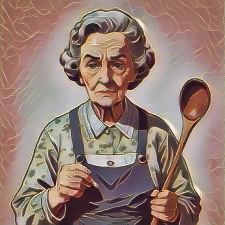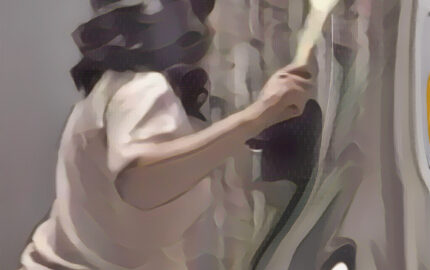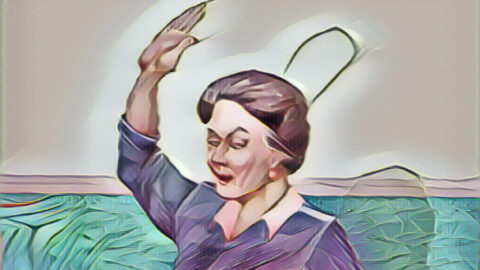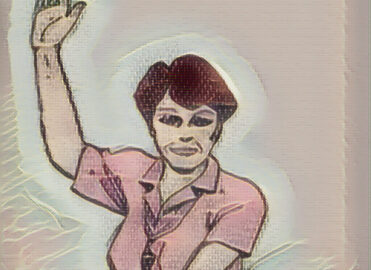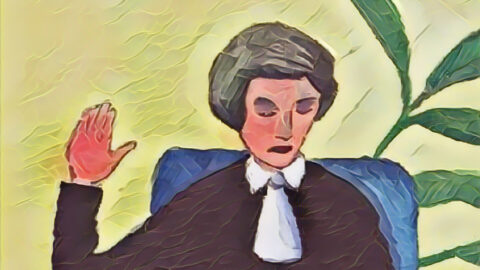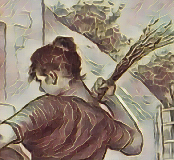(gap: 1s) In the gentle countryside of England, where the sun shone kindly upon the fields and the hedgerows were alive with birdsong, my childhood unfolded with the simple joys of family, friendship, and the lessons that come from right and wrong. Our home was filled with laughter and the cheerful bustle of daily life, but it was also a place where good behaviour was expected, and where discipline was given with a firm yet loving hand.
(pause) Whenever my brother Peter or I did something we ought not to have done, Mother would call us in her clear, steady voice. “Laura, Peter, come here at once,” she would say, and we knew at once that we must obey. There was never any shouting or crossness, only a quiet authority that made us wish we had behaved better.
(pause) Mother would lead us, heads bowed, into her bedroom. She would sit upon the old blanket chest at the foot of her bed, her back straight and her eyes both kind and resolute. “You know why you are here,” she would say gently. “You must learn that every action has a consequence.” (short pause) Then, with a gentle but firm hand, she would draw us across her lap. The room would be very quiet, save for the ticking of the clock and the soft scent of lavender in the air.
(pause) Mother would give each of us six firm smacks with her hand—six for me, and six for Peter. Each smack was sharp and stung, but it was never cruel. The sound echoed in the stillness, mingling with our little cries and the occasional sniffle. Mother would continue until she was certain we had truly learned our lesson. Afterwards, she would look into our eyes, now bright with tears, and say, “I do this because I love you. I want you to grow up to be good and honest.” (short pause) Then we were sent to our rooms for an hour, to think quietly and let the lesson settle in our hearts.
(pause) As I grew older, the lessons became sterner. When I was about ten years old, Mother introduced the hairbrush—a heavy, gleaming Mason & Pearson, which was only used for the most serious misdeeds. The ritual was unchanged, but the sense of importance was greater. “Over you go, Laura,” she would say, patting her knee. “If you wriggle or try to escape, there will be extra smacks.” (short pause) I would lie across her lap, my heart beating fast, and feel the cool wood of the brush against my skin as she warned, “Twelve smacks, and not a one less.”
(pause) The first smack with the hairbrush was always the sharpest, and I could not help but kick my legs and clutch at the bedspread. Mother would count each smack aloud, her voice calm and steady: “One… two… three…” By the sixth, I would be crying in earnest, promising to be good and never to disobey again. Each smack was a clear reminder, the sting spreading across my skin, and tears running down my cheeks. Sometimes, if I wriggled away in my distress, Mother would pause, lift me gently, and say, “Back you go, Laura. We must finish what we started.” (short pause) She would continue, counting each remaining smack until all twelve had been given.
(pause) When it was over, Mother would help me up, her eyes soft and loving. She would kiss my cheek and say, “All is forgiven, my dear.” I would gather my clothes, my cheeks burning, and go to my room, where I would lie on my bed and weep quietly until the pain faded and the lesson was learned.
(pause) As the years passed, the need for spankings grew less, but the hairbrush remained in its place—a gentle reminder of the importance of honesty and good behaviour. Even when I was older, if I forgot my responsibilities, Mother would meet me at the door, hairbrush in hand. “You must learn responsibility, Laura,” she would say, and I would receive twelve firm smacks, each one a loving lesson. (long pause) Now, as I look back, I see that these moments, though difficult, helped me to grow into a kind and honest person, always mindful of the lessons learned at Mother’s knee.




















































